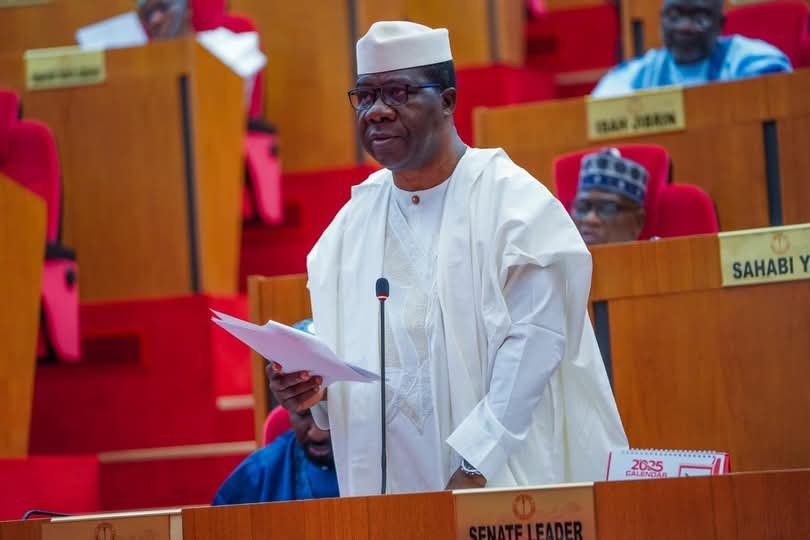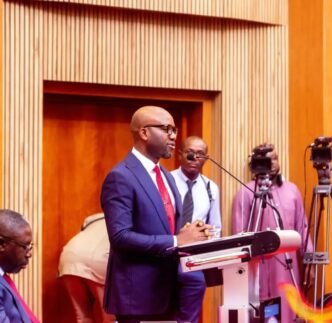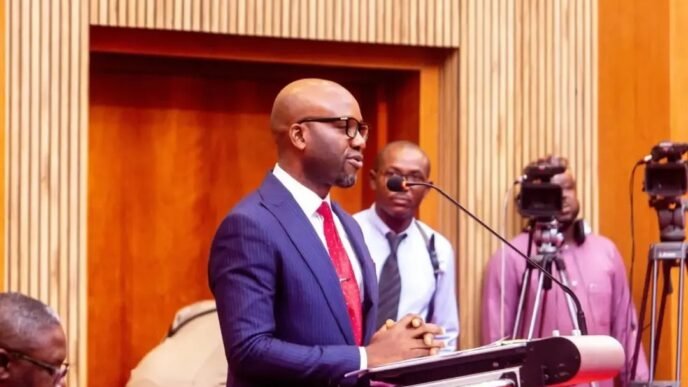On Wednesday, November 5, 2025, the Senate passed the Sexual Harassment of Students (Prevention and Prohibition) Bill, 2025. The legislation, which had earlier been passed by the House of Representatives, was presented for concurrence by Senate Leader, Sen. Michael Opeyemi Bamidele (APC, Ekiti Central). The bill seeks to dismantle what he described as a “culture of coercion and silence” that has eroded trust between educators and students.
“This law safeguards the sanctity of the student-educator relationship built on authority, dependency and trust. It ensures that no educator ever uses that trust as a weapon of exploitation again.”
-Sen. Michael Opeyemi Bamidele
Key Highlights of the Bill
- The provisions of the bill protect students from all forms of sexual misconduct and abuse within academic environments including: demanding or forcing sex from a student or prospective student; making unwelcome sexual advances or creating a hostile environment; touching, kissing, hugging, or pinching a student in a sexual manner; whistling, winking, or making sexually flattering comments about a student’s body, sending sexually explicit pictures or remarks; stalking or making sexually suggestive jokes or comments. Even indirect complicity, such as aiding or inducing another person to commit sexual harassment, now carries criminal weight.
- Educators convicted of sexual harassment face a minimum of 5 years and up to 14 years’ imprisonment, with no option of fine. Lesser but related offences attract between two and five years’ imprisonment, also without a fine.
- Institutions or their heads that fail to act on reported cases may also face penalties of up to N5 million.
- The bill further stipulated that consent could not be used as a defence where a sexual act occurred between an educator and a student, except in cases where the two were legally married.
- It also introduced a provision empowering victims to seek civil redress. A student sexually harassed by an educator has the right to sue the educator for damages in addition to any criminal prosecution.
- Every tertiary institution will be mandated to establish an Independent Sexual Harassment Prohibition Committee, empowered to investigate and deliver final decisions on complaints in line with the law. However, once a case enters court, no internal disciplinary panel may continue the same matter to avoid conflicts of jurisdiction.
- Students or their representatives — including family members, guardians, or lawyers — can now file a written sexual harassment petition directly with the Nigerian Police Force, the Attorney-General, or the institution’s Independent Sexual Harassment Prohibition Committee.
The bill specifically targets all forms of sexual exploitation and abuse of authority by lecturers, administrators, and staff within the education sector, where incidents have grown increasingly troubling. For years, Nigerian universities have faced recurring reports of “sex-for-grades” scandals, many of which were left unaddressed. Lawmakers say the Senate’s move marks a decisive shift toward accountability and zero tolerance for such abuses.













